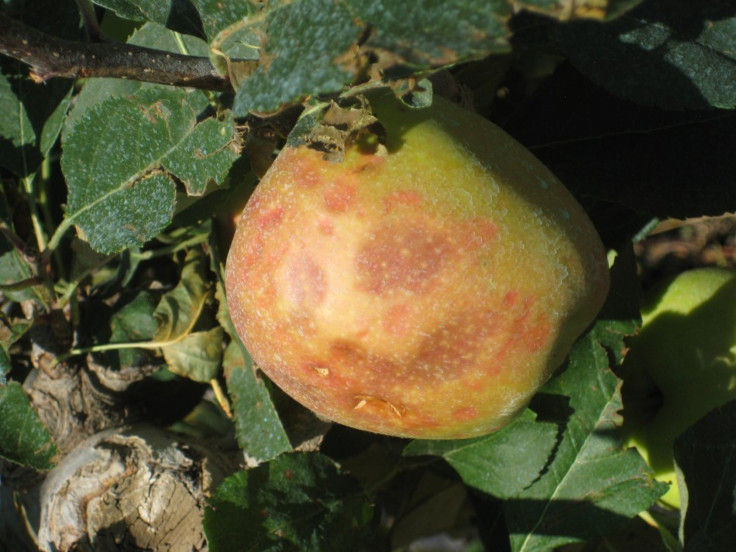Hail, Late Freezes And Drought Means Fewer Apples This Year

If you notice the price increases in apple cider this fall, blame it on the wacky weather.
An early arrival of spring in New York -- the country's No. 2 apple grower -- prematurely woke trees up from their winter slumber. But that was followed by a dip in temperatures.
"The trees came to bloom in April, when we had 14 freeze events," said Jim Allen, president of the New York Apple Association in Fishers, N.Y. "We lost buds early and that greatly thinned the overall crop across the state."
That represents a lot of fallen fruit. Overall, the U.S. Department of Agriculture predicts the U.S. apple crop will plunge 14 percent this year to only 8.06 billion pounds.
New York each year typically produces about 30 million bushels of a variety of apples, representing a crop value about $300 million. This year the state's crop could be as low as 14 million.
The lower crop yield for America's second popular fruit -- oranges are No. 1 -- comes at time when food prices are expected to rise on the massive drought that has withered the country's corn crop. Friday's monthly USDA food inflation summary left prices for all fresh fruits unchanged for the year, with expectations of a price increase of 2 percent or 3 percent.
The USDA predicted prices of meat, fish and poultry will rise next year as much as 3.5 percent. Livestock eat corn-based feed.
Prices rises for apples won't be seen until the fall harvest.
Allen, of the New York growers, said the most affected varieties have been Red Delicious, Empire, Mcintosh and Cortland apples. Drought has also been a factor, albeit not as much as the late freeze.
"We also had 48 days with no rain during a critical stage of fruit development," said Allen.
Michigan, the country's third-largest producer, also suffered late freezes.
"There are just no apples and any that are left are on the top of the trees where people can't reach," Ed Miller, owner of Goold's Orchards, told the Albany Times Union. "If you got apples, you're going to make money this year."
Washington, the No. 1 apple grower, has also been battered in the past six weeks by an unusual amount of hail that put a dent on an expected bumper crop.
The country imports only about 6 percent of consumption. Most imported apples come from Argentina and Chile and appear on grocery stores shelves in July and August. China is the world's largest apple producer, growing about half the global crop.
On the bright side: This year's low precipitation levels means less water in the fruit. And that means sweeter apples.
"It makes great apple cider," said Allen.
© Copyright IBTimes 2024. All rights reserved.












